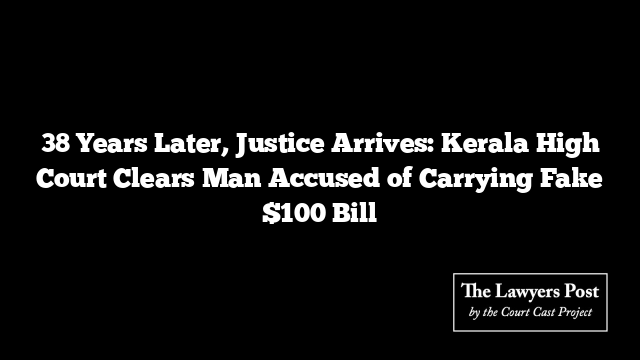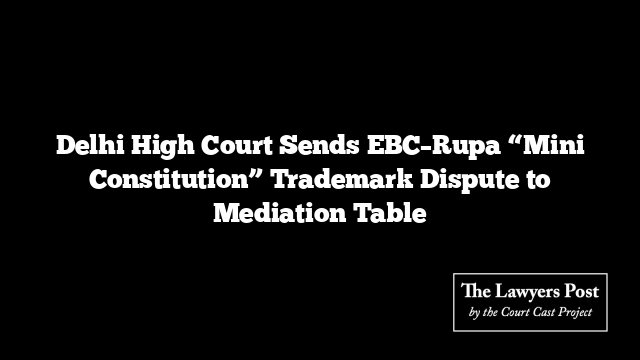Nearly four decades after a torn $100 bill turned into a criminal case, the Kerala High Court has brought closure for Abdul Hakkim, acquitting him of charges that he knowingly possessed counterfeit currency.
Justice Johnson John dismantled the prosecution’s case, pointing out that there was no proof that Hakkim knew the note was fake or ever tried to use it as genuine money. The Court stressed that mere possession of a counterfeit note doesn’t make one guilty under Section 489C of the Indian Penal Code unless there’s evidence of intent to use it as real.
“It is well settled that simply because a counterfeit note is seized from the possession of the accused, the offence under Section 489C IPC will not be attracted,” the Court observed. The ruling underscored that knowledge and intent are indispensable ingredients for conviction.
The story began in 1987, near the Thiruvananthapuram airport, when police claimed Hakkim tried to pass off a fake U.S. note. A sessions court in Kollam later convicted him in 2009, sentencing him to three years in prison and a ₹5,000 fine.
Hakkim, a headload worker at the time, said he had received the note from foreign tourists as payment for carrying their luggage. When his co-workers noticed the bill was torn and pasted together, an argument broke out—just as the police arrived and took him into custody.
By the time the case reached the High Court, the prosecution’s version had crumbled. Two main witnesses had turned hostile, the investigating officer had died, and the remaining testimony was hearsay. The judge noted that the trial court had improperly treated police statements as substantive evidence and failed to question Hakkim about his knowledge of the note’s authenticity during his examination under Section 313 of the CrPC—an omission the Court called “fatal” to the prosecution.
Finding that the evidence fell far short of proving intent or conscious possession, the High Court ruled that Hakkim was entitled to the benefit of doubt and overturned his conviction—closing a case that had lingered for 38 long years.




